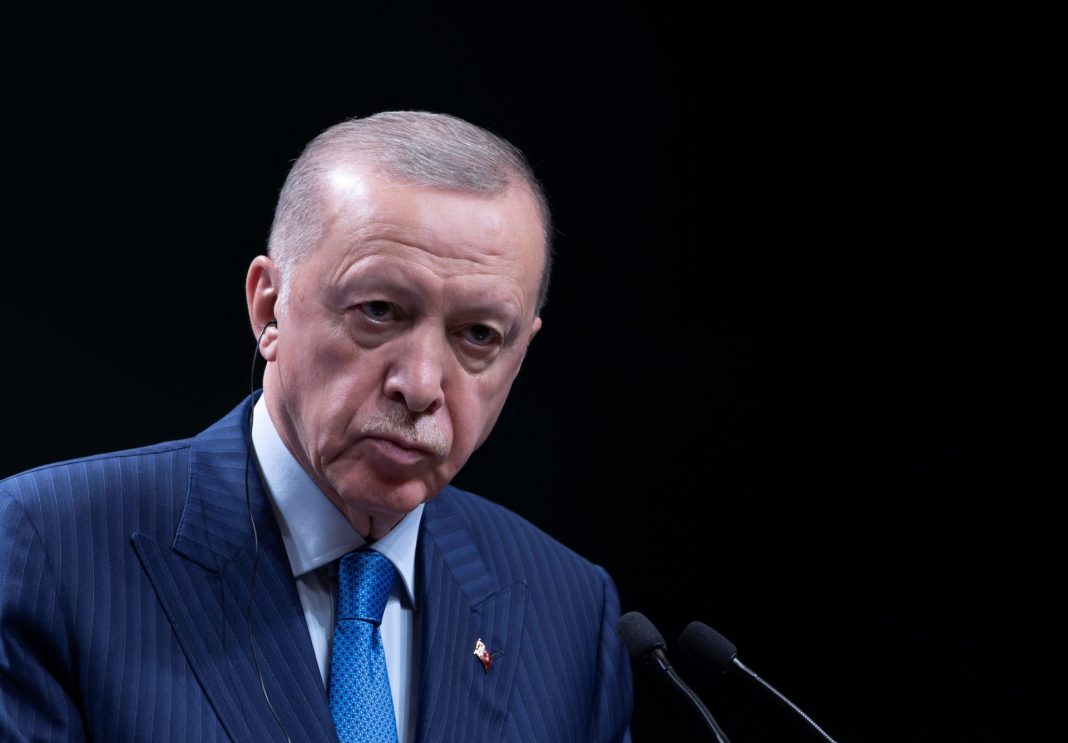Erdogan made the comments to journalists aboard his plane following visits to Saudi Arabia and Azerbaijan.
“The government of the Republic of Turkey, under the leadership of Tayyip Erdogan, will not continue or develop relations with Israel,” Erdogan said.
“[Our ruling coalition] is resolute in its decision to cut ties with Israel, and we will maintain this stance in the future as well.”
“We, as the Republic of Turkey and its government, have currently severed all relations with Israel,” he added.
Despite imposing a trade embargo on Israel in May, Ankara continues to maintain diplomatic relations with Tel Aviv.
Although the Turkish government formally recalled its ambassador last year for consultations, Turkish diplomatic missions in Tel Aviv remain open and operational.
Similarly, Israel evacuated its embassy in Ankara last year, citing regional security threats.
Erdogan also emphasised on Wednesday that Turkey would do everything in its power to hold Israeli Prime Minister Benjamin Netanyahu accountable for his actions in Gaza, which international human rights groups have described as genocide.
Earlier this year, Turkey intervened in a genocide case against Israel at the International Court of Justice (ICJ) in support of Palestine and advocated for an arms embargo against Tel Aviv.
Erdogan said 52 countries and two international organisations had expressed their support for the arms embargo initiative Turkey launched at the United Nations in early November, aimed at preventing the shipment of weapons and ammunition to Israel.
“We recently submitted our formal letter regarding this initiative to the president of the United Nations Security Council and the secretary-general of the United Nations,” Erdogan added.
“During our summit in Riyadh, a decision was made to invite all organisations and members of the Arab League to sign this letter.”
Turkish-Israeli relations have deteriorated sharply since a meeting between Erdogan and Netanyahu in New York in September of last year, which was intended to symbolise reconciliation between the two nations.
However, following the Hamas-led attack on Israel on 7 October 2023 and Israel’s subsequent war on Gaza, which has killed more than 43,000 Palestinians, Ankara has intensified its criticism of the Netanyahu government.
This led to a series of actions, including legal measures and trade sanctions, especially after the local elections in Turkey where Erdogan’s ruling Justice and Development Party (AKP) was punished in part over its weak response to the war on Gaza.
Since September, ongoing Turkish trade with Israel through third countries and Palestine has sparked a public pressure campaign by the opposition, who accused Erdogan of failing to close loopholes that facilitate continued interaction.
